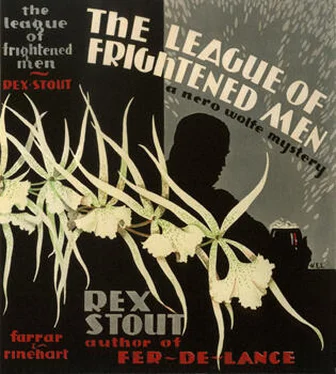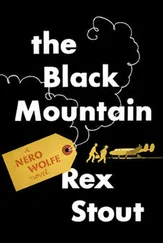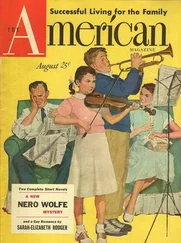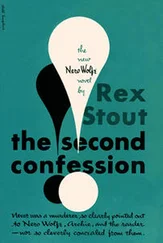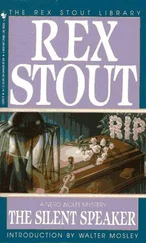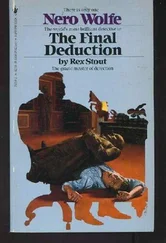It had happened nearly five months back, but the things that had happened since, starting with the typewritten poems they had got in the mail, had kept their memories active. Paul Chapin had driven up to Harvard with Leopold Elkus, the surgeon, who had gone because he had a son graduating. Judge Harrison had come on from Indianapolis for the same reason. Drummond had been there, Elkus told me, because each year the doubt whether he had really graduated from a big university became overwhelming and he went back every June to make sure. Elkus was very fond of Drummond, the way a taxi-driver is of a cop. Cabot and Sidney Lang had been in Boston on business, and Bowen had been a house-guest at the home of Theodore Gaines; presumably they were hatching some sort of a financial deal. Anyway, Fillmore Collard had got in touch with his old classmates and invited them for the week-end to his place near Marblehead. There had been quite a party, more than a dozen altogether.
Saturday evening after dinner they had strolled through the grounds, as darkness fell, to the edge of a hundred-foot cliff at the base of which the surf roared among jagged rocks. Four, among them Cabot and Elkus, had stayed in the house playing bridge. Paul Chapin had hobbled along with the strollers. They had separated, some going to the stables with Collard to see a sick horse, some back to the house, one or two staying behind. It was an hour or so later that they missed Harrison, and not until midnight did they become really concerned. Daylight came before the tide was out enough for them to find his cut and bruised body at the foot of the cliff, wedged among the rocks.
A tragic accident and a ruined party. It had had no significance beyond that until the Wednesday following, when the typewritten poem came to each of them. It said a good deal for Paul Chapin’s character and quality, the fact that none of them for a moment doubted the poem’s implications. Cabot said that what closed their minds to any doubt was the similarity in the manner of Harrison’s death to the accident Chapin had suffered from many years before. He had fallen from a height. They got together, and considered, and tried to remember. After the interval of four days there was a good deal of disagreement. A man named Meyer, who lived in Boston, had stated Saturday night that he had gone off leaving Harrison seated on the edge of the cliff and had jokingly warned him to be ready to pull his parachute cord, and that no one else had been around. Now they tried to remember about Chapin. Two were positive that he had limped along after the group strolling to the house, that he had come up to them on the veranda, and had entered with them. Bowen thought he remembered seeing him at the stables. Sidney Lang had seen him reading a book soon after the group returned, and was of the opinion that he had not stirred from his seat for an hour or more.
All the league was in on it now, for they had all got warnings. They got nowhere. Two or three were inclined to laugh it off. Leopold Elkus thought Chapin guiltless, even of the warnings, and advised looking elsewhere for the culprit. Some, quite a few at first, were in favor of turning it over to the police, but they were talked down, chiefly by Hibbard and Burton and Elkus. Collard and Gaines came down from Boston, and they tried to reconstruct the evening and definitely outline Chapin’s movements, but failed through disagreements. In the end they delegated Burton, Cabot and Lang to call on Chapin.
Chapin had smiled at them. At their insistence he described his Saturday evening movements, recollecting them clearly and in detail; he had caught up with them at the cliff and sat there on a bench, and had left with the group that returned to the house; he had not noticed Harrison sitting on the cliff’s edge. At the house, not being a card-player, he had got into a chair with a book and had stayed there with it until aroused by the hubbub over Harrison’s absence — approaching midnight. That was his smiling story. He had been not angry, but delicately hurt, that his best friends could think him capable of wishing injury to one of them, knowing as they did that the only struggle in his breast was between affection and gratitude, for the lead. Smiling, but hurt. As for the warnings they had received, that was another matter. Regarding that, he said, his sorrow that they should suspect him not only of violence but threats of additional violence, was lost in his indignation that he should be accused of so miserable a piece of versifying. He criticized it in detail and with force. As a threat it might be thought effective, he couldn’t say as to that, but as poetry it was rotten, and he had certainly never supposed that his best friends could accuse him of such an offense. But then, he had ended, he realized that he would have to forgive them and he did so, fully and without reservation, since it was obvious that they were having quite a scare and so should not be held to account.
Who had sent the warnings, if he hadn’t? He had no idea. Of course it could have been done by anyone knowing of that ancient accident who had also learned of this recent one. One guess was as good as another, unless they could uncover something to point their suspicion. The postmark might furnish a hint, or the envelopes and paper, or the typewriting itself. Maybe they had better see if they couldn’t find the typewriter.
The committee of three had called on him at his apartment in Perry Street, and were sitting with him in the little room that he used for a study. As he had offered his helpful suggestion he had got up and limped over to his typewriter, patted it, and smiled at them:
“I’m sure that discreditable stuff wasn’t written on this, unless one of you fellows sneaked in here and used it when I wasn’t looking.”
Nicholas Cabot had been tough enough to go over and stick in a sheet of paper and type a few lines on it, and put the sheet in his pocket and take it away with him, but a later examination had shown that Chapin was quite correct. The committee had made its report, and subsequent discussions had taken place, but weeks had gone by and the thing petered out. Most of them, becoming a little ashamed of themselves and convinced that someone had tried a practical joke, made a point of continuing their friendly relations with Chapin. So far as was known by the six men I talked to, it hadn’t been mentioned to him again.
I reported all this, in brief outline, to Wolfe Tuesday evening. His comment was, “Then the death of this Judge Harrison, this man who in his conceit permitted himself the awful pretensions of a reader of chaos — whether designed by Providence or by Paul Chapin, his death was extempore. Let us forget it; it might clutter up our minds, but it cannot crowd oblivion. If Mr. Chapin had been content with that man’s death and had restrained his impulse to rodomontade, he might have considered himself safely avenged — in that instance. But his vanity undid him; he wrote that threat and sent it broadcast. That was dangerous.”
“How sure are you?”
“Sure—”
“That he sent the threat.”
“Did I not say he did?”
“Yeah. Excuse me for living.”
“I would not take that responsibility; I have all I can do to excuse myself.—But so much for Judge Harrison; whatever chaos he inhabits now, let us hope he contemplates it with a wiser modesty. I would tell you about Mr. Hibbard. That is, I would tell you nothing, for there is nothing to tell. His niece, Miss Evelyn Hibbard, called on me this morning.”
“Oh, she did. I thought she was coming Wednesday.”
“She anticipated it, having received a report of last evening’s gathering.”
“Did she spill anything new?”
“She could add nothing to what she told you Saturday evening. She has made another thorough search of the apartment, helped by her sister, and can find nothing whatever missing. Either Mr. Hibbard’s absence was unforeseen by him, or he was a remarkably intelligent and strong-willed man. He was devoted to two pipes, which he smoked alternately. One of them is there in its usual place. He made no uncommon withdrawal from his bank, but he always carried a good deal of cash.”
Читать дальше
